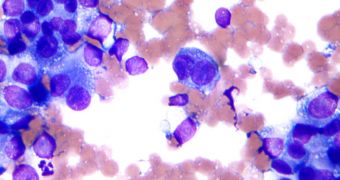According to a new series of investigations, it would appear that using the drug celecoxib, which is also commonly known as Celebrex, reduces the risk of people developing some basic types of skin cancer.
This chemical is generally used as a therapy against arthritis. The researchers behind the new study say that, while the correlation holds true for averting cancer, excessive drug consumption can lead to a host of heart problems.
The investigators have yet to tease out the molecular mechanisms and pathways through which the compound acts in the human body, and through which it damages the heart. The group says that more work is needed in this issue.
Even if cancer variants such as squamous cell carcinomas and basal cell carcinomas appear on arthritis patients that take the drug, the tumors appear to be unable to evolve any further.
The research was carried out at the University of Alabama at Birmingham, by a team at the Dermatology Department, led by chairman and study researcher Dr. Craig Elmets, LiveScience reports.
“The fact that celecoxib was observed to inhibit the development of these cancers opens up a new class of drugs that may be able to prevent these common malignancies,” the investigator says.
Treating skin cancers is a crucially important objective of modern medicine, given that they represent a large portion of all cancer cases developing around the world.
The researchers underline the importance of such research in a paper published in the November 29 issue of the esteemed Journal of the National Cancer Institute. More than 2 million US citizens develop skin cancer ever year.
These are statistics provided by the American Academy of Dermatology (AAD). Ccelecoxib and other similar drugs act by inhibiting cyclooxygenase-2 (COX-2), an enzyme found to play a role in the development of colorectal cancer and non-melanoma skin cancer.
“If you look at somebody completely normal and you're trying to prevent something, the agent better be very, very safe,” says of the challenges associated with taking this drug University of California in Irvine (UCI) Dr. Frank L. Meyskens.
“But on the other hand, if they're very high-risk because of family history, previous cancer or their lifestyle, [the preventive drug] could be worth accepting,” adds the expert, who was not a part of the study.
Researchers now plan to look at drugs similar to celecoxib in action, but which can be taken in large amounts without promoting any of the negative side-effects associated with the existing medication.

 14 DAY TRIAL //
14 DAY TRIAL //